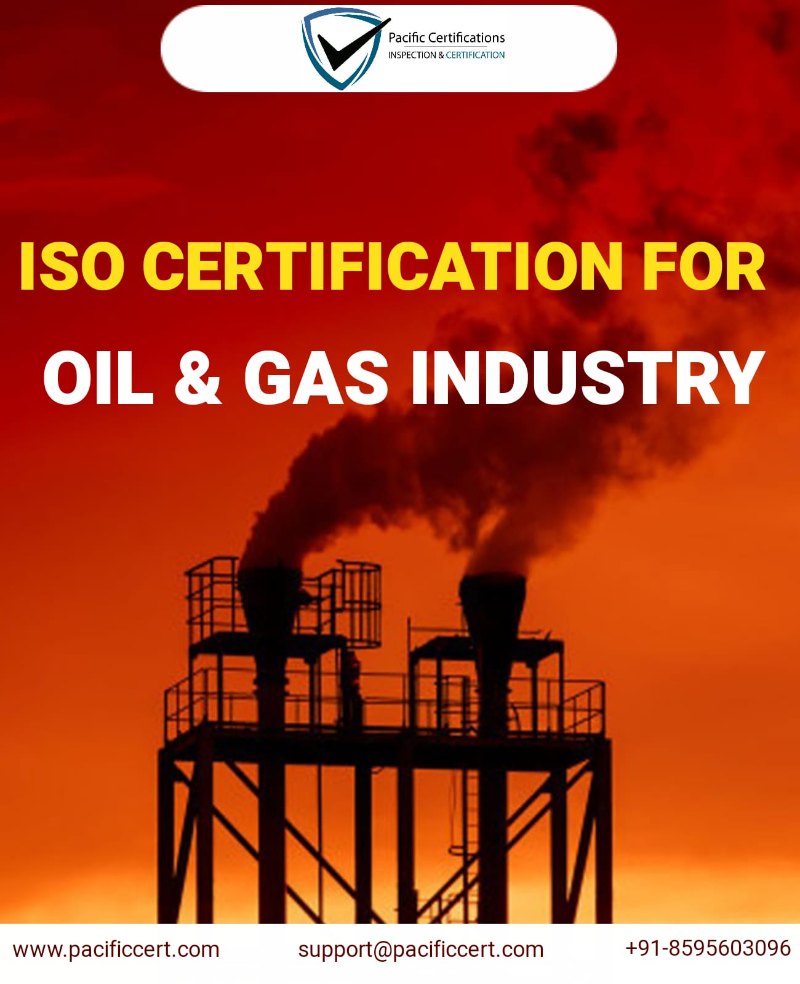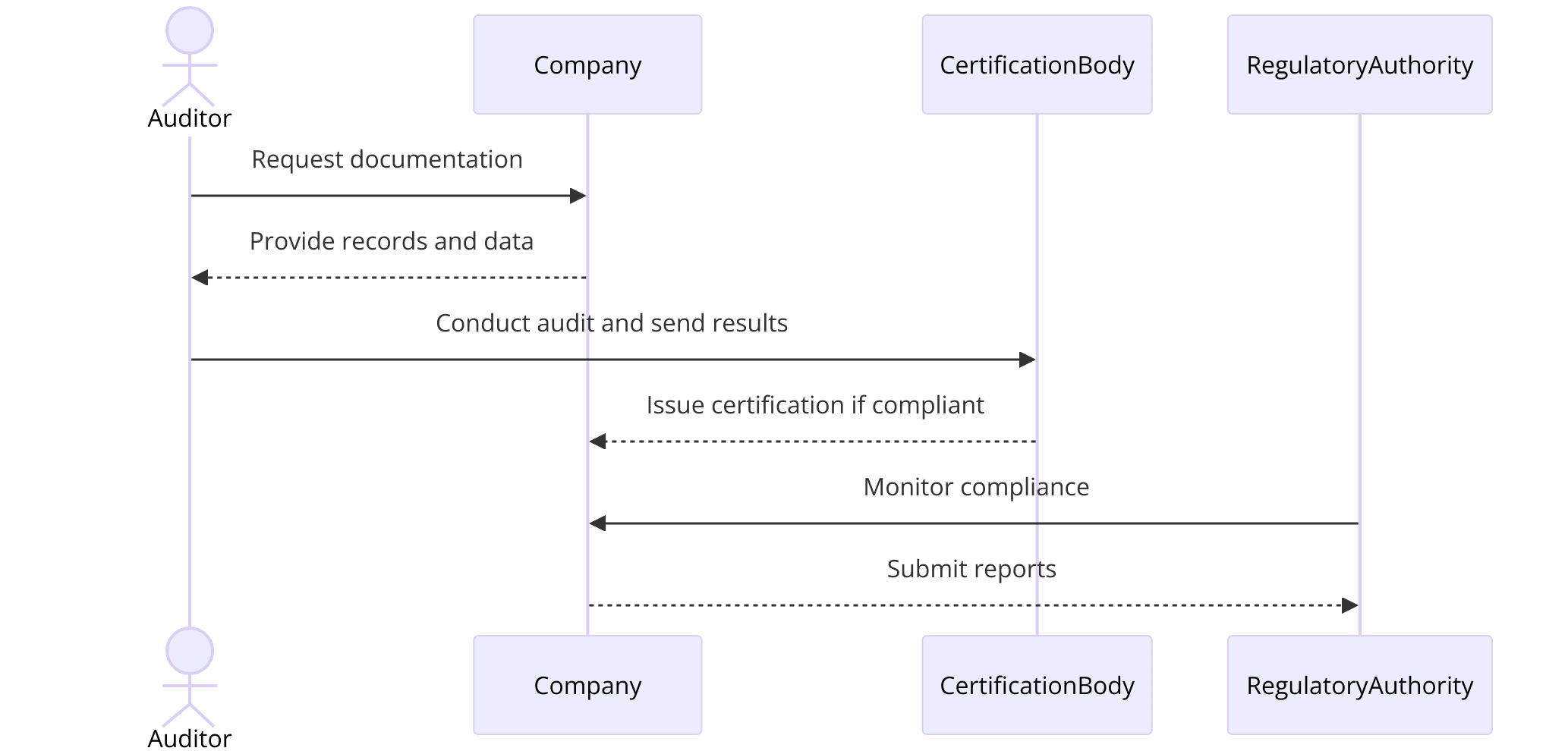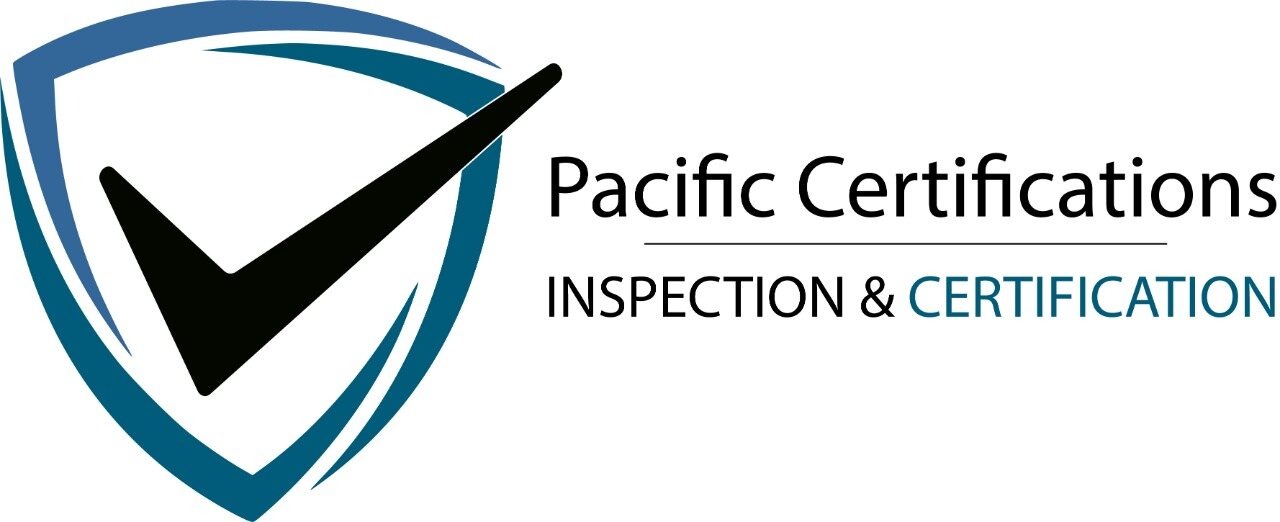ISO Certifications for Oil & Gas Industry, Requirements & Benefits

Introduction
The oil and gas industry is among the world’s most high-risk and highly regulated sectors, with operations spanning exploration, drilling, refining, pipelines, offshore platforms, LNG plants, and petrochemical facilities. Organizations in this sector face growing challenges: safety incidents, environmental concerns, operational downtime, and compliance with strict international regulations.
ISO certifications provide a globally recognized framework to ensure quality, safety, environmental sustainability, and operational reliability. They help oil and gas companies reduce risks, meet stakeholder expectations, and secure licenses to operate in competitive global markets.
By achieving ISO certifications such as ISO 9001 for quality management, ISO 14001 for environmental management, and ISO 45001 for occupational health and safety, oil and gas businesses can improve operational effectiveness, reduce environmental risks and ensure the safety of their employees.
Moreover, ISO certifications help organizations comply with international regulations, making them indispensable for sustainable growth and reputation in the industry.
These are just a few of the many ISO certifications relevant to the oil and gas industry, there are more standards applicable, to find out, contact us at [email protected].
Quick Summary
ISO certifications such as ISO 9001, ISO 14001, ISO 45001, ISO 50001, and ISO/IEC 27001 play a critical role in the oil and gas industry by establishing structured systems for quality assurance, environmental protection, occupational health and safety, energy efficiency, and information security. These standards help upstream, midstream, and downstream organizations manage high-risk operations, comply with strict regulatory requirements, reduce environmental and safety incidents, and improve operational reliability. ISO certification strengthens trust with regulators, investors, and global clients while supporting safe, efficient, and sustainable oil and gas operations across exploration, production, refining, and distribution activities.
Applicable ISO standards for Oil & Gas Industry
The oil and gas industry can benefit from various ISO standards that address different aspects of quality and safety. Below are some of the key ISO standards applicable to the oil and gas sector:
ISO 29001: Quality Management Systems for the Petroleum, Petrochemical, and Natural Gas Industries: This standard provides sector-specific guidelines for quality management systems in the petroleum, petrochemical, and natural gas industries.
ISO 9001: Quality Management System (QMS): ISO 9001 sets the foundation for quality management, helps the oil and gas sector to manage processes related to exploration, drilling, production and distribution of oil and gas products.
ISO 14001: Environmental Management System (EMS): ISO 14001 focuses on environmental management. Given the environmental impact of oil and gas operations, this standard helps companies minimize their environmental footprint and comply with regulations.
ISO 45001: Occupational Health and Safety Management System (OHSMS): ISO 45001 is crucial in the oil and gas industry due to the hazardous nature of operations. It ensures a safe work environment and the protection of workers' health and safety.
ISO 50001: Energy Management System (EnMS): ISO 50001 aids organizations in optimizing energy usage and reducing energy costs. In the energy-intensive oil and gas sector, this standard can significantly contribute to cost savings and environmental sustainability.
ISO 27001: Information Security Management System (ISMS): ISO 27001 helps organizations in the oil and gas industry secure their information assets, protecting sensitive data from breaches and unauthorized access.
ISO 10002: Quality Management - Customer Satisfaction - Guidelines for Complaints Handling in Organizations: In a competitive industry, ISO 10002 helps organizations address customer concerns effectively, leading to enhanced customer satisfaction and loyalty.
ISO 22301: Business Continuity Management System (BCMS): This standard focuses on business continuity planning and disaster recovery. Given the potential impact of disruptions on oil and gas operations, ISO 22301 helps maintain essential functions during crises.
ISO 17025: Testing and Calibration Laboratories: For laboratories involved in testing and calibration of oil and gas products, ISO 17025 certification ensures accurate and reliable results, contributing to quality assurance.
ISO 19901-1: Petroleum and Natural Gas Industries - Specific Requirements for Offshore Structures - Part 1: Metocean Design and Operating Considerations: This standard addresses the design and operation of offshore structures in the oil and gas industry, considering meteorological and oceanographic factors.
ISO 20815: Petroleum, petrochemical and natural gas industries - Production assurance and reliability management: This standard provides guidelines for managing production assurance and reliability in the oil and gas industry.
Depending on the specific operations and challenges of your organization, you may choose to implement one or multiple ISO standards to improve various aspects of your business.
Contact us today to get help with the applicable ISO standards for your business!
What are the requirements for ISO Certifications for Oil & Gas Industry?
The requirements for ISO certification in the oil and gas industry can vary depending on the specific ISO standard you're seeking certification for. Below an overview of the general process and requirements:
Select the Relevant ISO Standard: Determine which ISO standards are most relevant to your organization's operations and goals.
Understand the Standard: Familiarize yourself with the requirements of the chosen ISO standard.
Gap Analysis: Conduct a gap analysis to identify the existing processes, practices, and documentation in your organization that align with the ISO standard's requirements.
Develop a Plan: Create a detailed implementation plan that outlines the steps you'll take to meet the ISO requirements.
Document Management System: Develop a document management system to ensure that all required documentation are properly created and maintained.
Process Implementation: Implement the necessary processes and practices to meet the ISO standard's requirements.
Document Control: Establish a system to control and manage your organization's documents.
Internal Audits: Conduct internal audits to assess your organization's compliance with the ISO standard.
Corrective Actions: Address any non-conformities or deficiencies identified during internal audits by implementing corrective actions.
Management Review: Hold regular management reviews to assess the effectiveness of the implemented ISO processes and identify opportunities for improvement.
External Certification Audit: Once you believe your organization is ready, contact an accredited certification body to schedule an external certification audit. The audit is conducted by an independent third party to verify your compliance with the ISO standard.
Certification Decision: Based on the findings of the audit, the certification body will make a decision regarding certification. If your organization meets the requirements, you will receive the ISO certification.
What are the benefits of ISO Certifications for Oil & Gas Industry?
ISO certifications offers numerous benefits to organizations in the oil and gas industry. Below are some key advantages of obtaining ISO certifications:
ISO certifications enhance your organization's credibility in the eyes of customers, partners, investors and regulatory authorities.
ISO standards are globally recognized and accepted.
Implementing ISO processes and practices can streamline operations, reduce waste, and enhance productivity.
ISO standards help companies in oil and gas sector to identify potential hazards, mitigate risks, and improve overall safety performance.
ISO certifications like ISO 45001 create a safer work environment & reduce accidents.
ISO 14001 certification helps better resource use, waste reduction and better management of environmental risks.
ISO-certified organizations often have increased customer satisfaction and loyalty.
By obtaining certification, your organization can access new business opportunities and partnerships.
Implementing ISO standards lead to cost savings through improved resource utilization and waste reduction.
ISO certification encourages a culture of continuous improvement.
ISO standards often align with regulatory requirements.
ISO-certified organizations often have well-defined processes
ISO certification can enhance your relationships with suppliers and partners.
ISO certifications provide a structured framework for improving various aspects of your oil and gas operations, leading to increased efficiency, safety, and customer satisfaction.
How Pacific Certifications Can Help
Pacific Certifications, accredited by ABIS, provides independent and internationally recognized ISO audit and certification services for organizations across the oil and gas value chain, including exploration, drilling, production, refining, storage, transportation, and distribution operations. Given the high-risk and compliance-intensive nature of the oil and gas sector, we a structured and impartial audit approach aligned with international accreditation and regulatory expectations.
We can support oil and gas organizations by:
Conducting independent audits for ISO 9001, ISO 14001, ISO 45001, ISO 50001, ISO/IEC 27001, and other applicable management system standards
Issuing ABIS-accredited ISO certificates accepted by regulators, national oil companies, EPC contractors, and international clients
Supporting integrated management system certification, allowing quality, environmental, health & safety, energy, and information security standards to be audited together
Auditing complex and multi-site operations, including offshore platforms, refineries, pipelines, terminals, and logistics facilities
Ensuring a transparent, consistent, and compliant certification process in accordance with ISO/IEC 17021 requirements
For ISO certification inquiries related to the oil and gas industry, contact [email protected]or +91-8595603096.
Post by: Ashish
Read more: ISO Certifications for Leather Industry-Applicable standards-Requirements and Benefits
